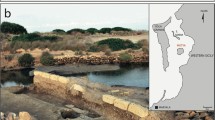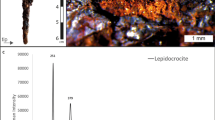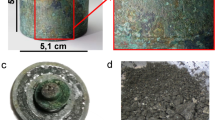Abstract
THE remarkable body which we know as “flint” was, in the early history of mankind in this part of the world, as important, relatively to the general conditions of life, as the metal “iron” is at the present day. In order to interpret correctly the significance of fractured flints—whether as due to man's agency or to other causes—and also in order to infer from the glaze, polish, colour, opacity, or other features of a humanly worked flint what are the geological and other physical conditions to which it has been subjected, very definite and accurate knowledge of flint, only to be arrived at by careful quantitative investigation, such as the skilled physicist and chemist can bring to bear, is necessary. Yet the entire scientific world is in a remarkable state of ignorance with regard to flint.
This is a preview of subscription content, access via your institution
Access options
Subscribe to this journal
Receive 51 print issues and online access
$199.00 per year
only $3.90 per issue
Buy this article
- Purchase on Springer Link
- Instant access to full article PDF
Prices may be subject to local taxes which are calculated during checkout
Similar content being viewed by others
Rights and permissions
About this article
Cite this article
LANKESTER, E. The Investigation of Flint.. Nature 90, 331–333 (1912). https://doi.org/10.1038/090331c0
Issue Date:
DOI: https://doi.org/10.1038/090331c0
Comments
By submitting a comment you agree to abide by our Terms and Community Guidelines. If you find something abusive or that does not comply with our terms or guidelines please flag it as inappropriate.



